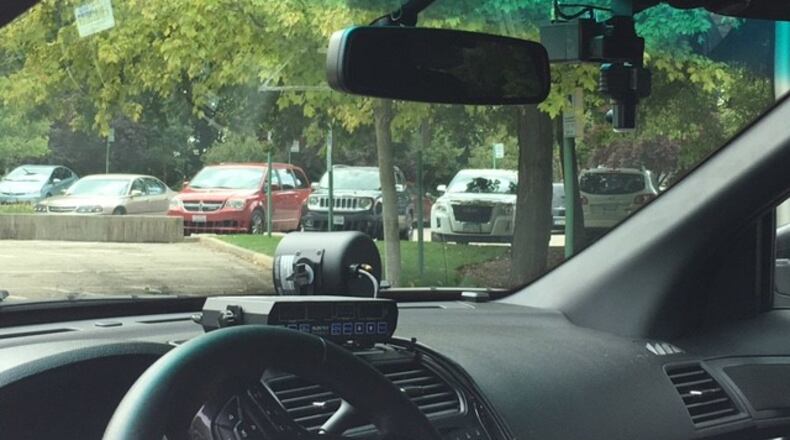“It can be seen as a win in one sense, in that the court said these are public records under the statute, clearly,” said Robert Vaughn, associate professor of criminal justice at Cedarville University. “On the other hand, you can say it’s somewhat of a loss, because the court still said there’s this exception of investigatory work product that the police are able to withhold portions of the videos.”
The ruling comes from a case involving the Cincinnati Enquirer’s request for three dash-cam videos from the Ohio State Highway Patrol of a January 2015 police chase and crash. The high-speed chase started in Warren County. The court decided the patrol should have promptly released the video. Instead, the patrol withheld the record until May, two months after the case was prosecuted.
The court declined to adopt a rule that all dash-cam video can be withheld until cases are prosecuted. The Open Records law includes an exemption for “confidential law enforcement investigatory records.”
“In the end, we hold that decisions about whether an exception to public-records disclosure applies to dash-cam recordings require a case-by-case review to determine whether the requested recordings contain investigative work product,” wrote Justice Judith French in the opinion.
Since the court did not define who would do the case-by-case review, that question may be open to interpretation and more litigation.
“As to who decides what falls within the exception of investigatory work product, ultimately that’s a legal question, so, obviously the police agency in consultation with their legal counsel is going to be making that determination in determining what is releaseable and what is not releaseable,” Vaughn said. “There’s a presumption that the police agency is going to act in good faith and release what they can pursuant to the law and what they cannot, they will withhold.”
This news organization routinely requests dash-cam video from police agencies. Video that was taken during the Oct. 31 Brookville police-involved fatal shooting has been requested.
Brookville law director Rodney Stephan said Tuesday he is reviewing the Supreme Court decision and anticipates releasing portions of the one video they have from the event. Stephan said all the videos that show events from that evening are with the Montgomery County Sheriff’s Office, who is investigating the incident. A previous request for dash-cam video was denied.
The sheriff’s office has routinely denied dash-cam video requests until cases are resolved. A Montgomery County Prosecutor’s Office spokesman said Tuesday that office is reviewing the court decision and the video to determine what may be released.
Dennis Hetzel of the Ohio Newspaper Association said of the ruling: “The idea that an entire video recording of an initial incident or encounter could be kept secret at the discretion of a police agency runs counter to our open records law. This ensures transparency and accountability while still giving police agencies the discretion they need to effectively investigate.”
The Enquirer was not awarded attorney fees, damages or court costs in the case. Justice William O’Neill issued a partial-dissent in the case, saying he would have awarded the Enquirer attorney fees.
Staff Writer Mark Gokavi contributed to this report.

